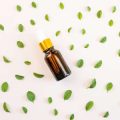Introduction to Aromatherapy in British Wellness Culture
Aromatherapy, the gentle art of using essential oils for wellbeing, has a rich and fascinating history that weaves through both ancient traditions and modern British life. Rooted in the herbal practices of early civilisations and the apothecaries of medieval Europe, aromatherapy has experienced a remarkable revival in recent years within the UK. Today, it is cherished not only for its evocative fragrances but also for its potential to support mental clarity, emotional balance, and physical vitality. From city spas in London to countryside retreats in the Lake District, more Britons are turning to essential oils as part of their daily self-care rituals. This renewed interest reflects a wider movement towards natural wellness across the nation—one that values mindful living and seeks comfort in time-honoured remedies. As we explore the science behind aromatherapy, it becomes clear why this practice continues to hold such a special place in British hearts and homes.
2. What Are Essential Oils?
Essential oils are the highly concentrated extracts obtained from various parts of aromatic plants, such as leaves, flowers, stems, and roots. These potent liquids capture the plant’s natural fragrance and therapeutic properties, forming the heart of aromatherapy practices. The process of extracting these oils is typically gentle and mindful—most commonly through steam distillation or cold pressing—which helps to preserve their delicate bioactive compounds.
For centuries, essential oils have played an important role in traditional wellness rituals across many cultures, including here in Britain. British botanicals like lavender from the rolling fields of Norfolk, chamomile from English meadows, and peppermint cultivated in Kent are cherished not only for their delightful scents but also for their soothing effects on mind and body. These time-honoured remedies have found their way into modern homes as a means of nurturing wellbeing naturally.
Traditional Uses of Essential Oils
| Botanical | Traditional British Use | Common Benefits |
|---|---|---|
| Lavender | Calming sleep sachets; bath infusions | Promotes relaxation; supports restful sleep |
| Chamomile | Herbal teas; soothing compresses | Eases tension; comforts digestive discomfort |
| Peppermint | Aromatic balms; herbal tisanes | Invigorates senses; soothes headaches |
This gentle exploration reminds us that essential oils are more than fragrant companions—they embody a tradition where nature’s gifts are harnessed to support our everyday health and emotional balance. By understanding their origins and historical uses, particularly those rooted in British heritage, we gain a deeper appreciation for how these oils can be thoughtfully integrated into modern self-care routines.
![]()
3. The Science of Scent: How Aromas Interact with the Brain
When we breathe in the delicate fragrances of essential oils, we are not merely enjoying a pleasant aroma; we are engaging in a subtle yet profound interaction between scent and our brain chemistry. At the heart of this process lies the limbic system, an ancient part of the brain deeply connected to emotion, memory, and behaviour. As essential oil molecules travel through the nose, they stimulate olfactory receptors which send direct signals to the limbic system. This is why certain scents can evoke vivid memories or instantly uplift our mood. Scientific studies have shown that specific aromas, such as lavender or bergamot, may help soothe feelings of anxiety by influencing neurotransmitters like serotonin and dopamine. In turn, these chemical messengers play a vital role in regulating stress levels and supporting emotional wellbeing. While more research continues to emerge, it’s clear that the simple act of inhaling essential oils can offer a gentle yet meaningful boost to our mental state—a comforting thought for anyone seeking natural ways to nurture mind and body.
4. Physical Benefits: More Than Just a Pleasant Fragrance
While many people are first drawn to aromatherapy for its delightful scents, the physical benefits of essential oils go far beyond just fragrance. Recent scientific studies have begun to uncover how these natural plant extracts can support our wellbeing in tangible ways, and here in the UK, both researchers and everyday individuals are embracing their potential.
The Science of Soothing Tension
One of the most widely researched effects of essential oils is their ability to ease physical tension. For instance, a study conducted at the University of Wolverhampton found that massage with lavender oil helped reduce muscle soreness among participants after strenuous exercise. This ties in well with traditional British practices like post-gardening relaxation or unwinding after a brisk walk on a chilly day.
Supporting Restful Sleep
Many Britons struggle with sleep, particularly during the darker months. Essential oils such as chamomile and bergamot have been shown to encourage deeper, more restful sleep by promoting relaxation and reducing feelings of anxiety. In fact, several NHS Trusts across England have piloted aromatherapy diffusers in hospital wards to help patients rest more comfortably overnight.
Real-Life Examples from Across the UK
| Essential Oil | Physical Benefit | UK Example |
|---|---|---|
| Lavender | Eases muscular tension and supports relaxation | Used by physiotherapists in Bath for post-sports recovery |
| Chamomile | Aids restful sleep and soothes digestive discomfort | Blended into teas enjoyed at bedtime in Yorkshire households |
| Peppermint | Alleviates headaches and boosts alertness | Peppermint balms favoured by office workers in London during busy afternoons |
Sustainable Choices Matter
As awareness grows about both health and environmental impact, many UK practitioners emphasise sourcing organic and ethically-harvested essential oils. Choosing local suppliers not only supports British growers but also ensures the highest purity for therapeutic use.
In summary, while aromatherapy’s appeal may begin with a lovely aroma, its science-backed benefits for easing tension, enhancing sleep, and supporting overall vitality are becoming increasingly recognised throughout the UK.
5. Safe Use and Everyday Application
Aromatherapy can be a delightful addition to daily life in the UK, but safety and quality must come first. When selecting essential oils, look for those labelled as 100% pure, therapeutic grade, and preferably sourced from reputable British or European suppliers. Always check that the Latin botanical name is provided, ensuring you know exactly what you’re using.
Choosing Quality Oils
Opt for dark glass bottles to protect oils from sunlight and degradation. If possible, visit local health shops or trusted online retailers with transparent sourcing and testing information. Remember, quality oils have a natural aroma—anything overly synthetic or cheap could be diluted or adulterated.
Safe Practices at Home
Diffusing
Add a few drops of your chosen oil to an ultrasonic diffuser for gentle fragrance throughout your home. For smaller spaces, placing a drop on a tissue works well. Always keep rooms ventilated.
Topical Use
Essential oils should never be applied directly to the skin without dilution. Mix with a carrier oil such as sweet almond or grapeseed (1-2% concentration) before massaging onto pulse points or temples.
Baths and Showers
Add 2-3 drops of oil to a tablespoon of milk or Epsom salts before swirling into bathwater—never drop them directly into water. This helps disperse the oils safely.
General Safety Tips
- Avoid ingesting essential oils unless directed by a qualified practitioner.
- Keep oils out of reach of children and pets.
- If pregnant, breastfeeding, or living with certain health conditions (such as asthma or epilepsy), consult your GP before use.
By following these simple guidelines, aromatherapy can become a safe and nurturing part of everyday British routines—from winding down after a rainy day to uplifting spirits during the darker winter months.
6. Bringing Nature Home: Embracing Aromatherapy as a Holistic Lifestyle
In our fast-paced modern world, many of us long for a deeper connection to nature and a sense of balance in our daily lives. Aromatherapy offers a gentle and natural path towards well-being, inspired by the very landscapes that define the British countryside—rolling meadows, lush woodlands, and fragrant gardens. By incorporating essential oils into our routines, we bring a touch of this calm, restorative environment into our homes. Whether diffusing lavender oil for relaxation after a brisk walk along the moors or using a blend of rosemary and eucalyptus to clear the mind on a rainy afternoon, aromatherapy allows us to reconnect with the rhythms of nature.
The British Way: Tradition Meets Modern Well-being
The use of botanicals has long been woven into British tradition, from herbal teas to garden remedies passed down through generations. Today, embracing aromatherapy extends these customs, offering scientifically-backed benefits while honouring time-honoured wisdom. Choosing locally sourced or wild-crafted essential oils supports both our health and the natural world around us—a mindful approach that resonates deeply within UK communities.
Cultivating Balance in Everyday Life
Aromatherapy encourages us to slow down and become more attuned to our needs, just as we might pause to appreciate bluebells in spring or heather on the hills. Integrating essential oils into daily rituals—be it in bath soaks, massage blends, or simply inhaling the gentle scent from a handkerchief—serves as a subtle reminder to nurture body and mind naturally.
Nurturing Mind, Body, and Environment
Ultimately, embracing aromatherapy is about more than individual self-care; it’s a holistic lifestyle choice that harmonises personal well-being with respect for nature. Inspired by the beauty of the British countryside, this practice invites us to live more thoughtfully—cultivating calm at home while fostering a greater appreciation for the natural world outside our windows.


